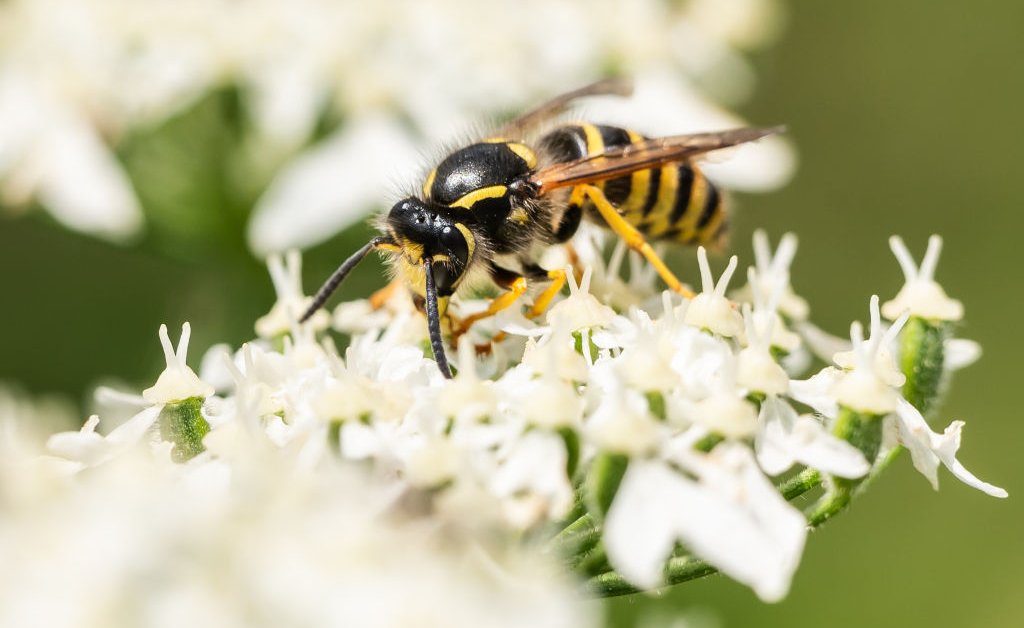Climate Change's Impact On Insect Behavior During Summer

Welcome to your ultimate source for breaking news, trending updates, and in-depth stories from around the world. Whether it's politics, technology, entertainment, sports, or lifestyle, we bring you real-time updates that keep you informed and ahead of the curve.
Our team works tirelessly to ensure you never miss a moment. From the latest developments in global events to the most talked-about topics on social media, our news platform is designed to deliver accurate and timely information, all in one place.
Stay in the know and join thousands of readers who trust us for reliable, up-to-date content. Explore our expertly curated articles and dive deeper into the stories that matter to you. Visit Best Website now and be part of the conversation. Don't miss out on the headlines that shape our world!
Table of Contents
Climate Change's Impact on Insect Behavior During Summer: A Shifting Landscape
Summer. The season of sunshine, long days, and… unusual insect behavior? Climate change is significantly altering the patterns of insect life, and the impacts are most dramatically felt during the hotter summer months. From shifting migration patterns to increased aggression, the consequences ripple through ecosystems and impact human lives in unexpected ways.
Changes in Insect Life Cycles:
Rising temperatures are accelerating insect life cycles. Many species are emerging earlier in the spring and extending their activity later into the autumn. This can lead to mismatches in the timing of crucial interactions, such as the availability of food sources or the emergence of host plants for caterpillars. For example, if a butterfly emerges before its host plant flowers, its survival is significantly jeopardized. This phenomenon, known as phenological mismatch, is a key concern for conservationists.
Increased Range Expansion:
Warmer temperatures are allowing some insect species to expand their geographical range, moving into previously uninhabitable regions. This can lead to the introduction of invasive species, disrupting local ecosystems and potentially impacting agriculture. The spread of disease vectors, such as mosquitoes carrying diseases like Zika or West Nile virus, is also a growing concern. Understanding these range expansions is critical for public health initiatives and agricultural planning.
Altered Migration Patterns:
Climate change is affecting the timing and routes of insect migrations. Changes in wind patterns, temperature gradients, and the availability of resources are causing disruptions to established migratory pathways. This can affect the pollination of crops and the distribution of beneficial insects, impacting agricultural yields and biodiversity. For example, the monarch butterfly's annual migration is already showing signs of disruption due to climate change.
Behavioral Changes: Aggression and Activity Levels:
Studies are showing that higher temperatures can lead to increased aggression and altered activity patterns in some insect species. This can have cascading effects on food webs and interactions between different species. Increased heat stress can also reduce insect foraging efficiency, further impacting population dynamics.
The Impact on Ecosystems:
The consequences of these changes are far-reaching. Disruptions in insect populations can impact pollination services, affecting crop yields and the health of wild plant communities. Changes in predator-prey relationships can destabilize food webs, leading to unpredictable consequences for biodiversity. Furthermore, the increased spread of disease vectors poses a significant risk to human and animal health.
What can we do?
Addressing the impact of climate change on insect behavior requires a multifaceted approach:
- Reducing greenhouse gas emissions: This is the most crucial step in mitigating climate change's effects on all aspects of the environment, including insect populations.
- Protecting and restoring habitats: Providing diverse and healthy habitats for insects is vital for their resilience in the face of climate change.
- Supporting research and monitoring: Continued research is essential to understand the complex impacts of climate change on insect populations and develop effective conservation strategies.
- Promoting sustainable agriculture: Reducing the use of pesticides and adopting sustainable agricultural practices can help protect beneficial insects.
The changes in insect behavior during summer are a stark warning of the broader impacts of climate change. By understanding these changes and taking proactive steps, we can work towards a more sustainable future for both insects and humanity. Learn more about climate change impacts . Even small actions can make a difference.

Thank you for visiting our website, your trusted source for the latest updates and in-depth coverage on Climate Change's Impact On Insect Behavior During Summer. We're committed to keeping you informed with timely and accurate information to meet your curiosity and needs.
If you have any questions, suggestions, or feedback, we'd love to hear from you. Your insights are valuable to us and help us improve to serve you better. Feel free to reach out through our contact page.
Don't forget to bookmark our website and check back regularly for the latest headlines and trending topics. See you next time, and thank you for being part of our growing community!
Featured Posts
-
 Trinidad And Tobago Vs Ghana Unity Cup Live Match Updates
May 31, 2025
Trinidad And Tobago Vs Ghana Unity Cup Live Match Updates
May 31, 2025 -
 Alycia Parks Vs Elsa Jacquemot A Detailed French Open 2025 Prediction
May 31, 2025
Alycia Parks Vs Elsa Jacquemot A Detailed French Open 2025 Prediction
May 31, 2025 -
 Nashville Speedway Craig Secures Victory Following Berrys Penalty
May 31, 2025
Nashville Speedway Craig Secures Victory Following Berrys Penalty
May 31, 2025 -
 Catch Up The Highest Rated New Tv Shows Of May 2025
May 31, 2025
Catch Up The Highest Rated New Tv Shows Of May 2025
May 31, 2025 -
 Honey Boo Boo Slams Patti Lupone Details Of Their Public Dispute
May 31, 2025
Honey Boo Boo Slams Patti Lupone Details Of Their Public Dispute
May 31, 2025
